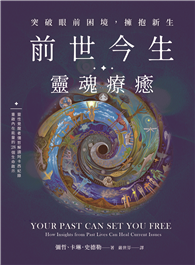Pleasure and desire have been important components of the vision for sexuality education for over 20 years. This book argues that there has been a lack of scrutiny over the political motivations that underpin research supportive of pleasure and desire within comprehensive sexuality education. In this volume, key researchers in the field consider how discourses related to pleasure and desire have been taken up internationally. They argue that sexuality education is clearly shaped by specific cultural and political contexts, and examine how these contexts have shaped the development of pleasure's inclusion in such programs. Via such discussions, this volume incites a re-configuration of thought regarding sexuality education's approach to pleasure and desire.
| FindBook |
有 1 項符合
The Politics of Pleasure in Sexuality Education: Pleasure Bound的圖書 |
 |
The Politics of Pleasure in Sexuality Education: Pleasure Bound 出版社:Routledge 出版日期:2016-11-18 語言:英文 規格:平裝 / 220頁 / 22.91 x 15.19 x 1.19 cm / 普通級 / 初版 |
| 圖書館借閱 |
| 國家圖書館 | 全國圖書書目資訊網 | 國立公共資訊圖書館 | 電子書服務平台 | MetaCat 跨館整合查詢 |
| 臺北市立圖書館 | 新北市立圖書館 | 基隆市公共圖書館 | 桃園市立圖書館 | 新竹縣公共圖書館 |
| 苗栗縣立圖書館 | 臺中市立圖書館 | 彰化縣公共圖書館 | 南投縣文化局 | 雲林縣公共圖書館 |
| 嘉義縣圖書館 | 臺南市立圖書館 | 高雄市立圖書館 | 屏東縣公共圖書館 | 宜蘭縣公共圖書館 |
| 花蓮縣文化局 | 臺東縣文化處 |
|
|
作者簡介
Louisa Allen is an Associate Professor in the Faculty of Education, University of Auckland. She researches and writes in the areas of young people, sexualities and schooling. She has published extensively in these areas and her latest sole authored book is ’Young People and Sexuality Education: Rethinking Key Debates’.
Mary Lou Rasmussen is an Associate Professor in Education, Monash University. Her principal research is in the area of sexualities, gender and education. She is the author of Becoming Subjects (2006) and co-editor of Youth and Sexualities (2004). A monograph, Progressive Sexuality Education: The Conceits of Secularism is forthcoming (2014).
Kathleen Quinlivan is a Senior Lecturer in Education at the University of Canterbury, Christchurch, New Zealand. She researches and writes extensively in the areas of critical sexuality education and schooling. She is the co-editor of Educational Enactments in a Globalised World: Intercultural Conversations (2009).
|











